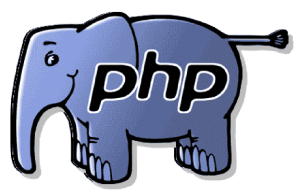This month in Athens, Netbeans users and developers in general will have a chance to attend to a free event about Netbeans.
NetBeans is a fantastic IDE, first designed for Java, but later it became one of the best choices for Web Developers in general. It is a great tool to develop in PHP, Javascript, html5 etc. It supports all the latest libraries and it has a very strong plugin ecosystem to support all kinds of external tools (version control systems, bug trackers, continuous integration servers, vagrant, etc). And of course it’s open source.
I will be there. It’s also an opportunity to meet people that we talk the last years through the community (the last years I am always a member of the NetCat team, that does all the testing for NetBeans).
Here is the announcement. For more information, please click here.
NetBeans Days is an international event that takes places in various countries around the world, since JavaOne 2014, where the idea was conceived. It is about the NetBeans IDE and Rich Client Platform as well as up to date information of the Java programming language (and also other languages that are supported by NetBeans).
The NetBeans Community, in collaboration with the Hub of Innovation & Entrepreneurship of Technopolis City of Athens is proud to invite you to a free event, on Friday 26 August, regarding the NetBeans IDE and Rich Client Platform. Take the opportunity to learn about the latest tips and tricks of the NetBeans IDE and the NetBeans platform by experts on the subject.
Agenda:
9:00-9:30: Registration, coffee
9:30-10:00: Welcome and NetBeans roadmap (Geertjan Wielenga: NetBeans Product Manager, Oracle)
10:00-11:30: Oracle JET – workshop (Geertjan Wielenga: NetBeans Product Manager, Oracle)
11:30-12:00: NetBeans and Java 9 support (Geertjan Wielenga)
12:00-13:00: Lunch Break
13:00-14:30: Developing mixed Java/Groovy projects with Gradle using Netbeans – workshop (Kostas Saidis: Niovity)
14:30-15:15: WildFly and Openshift plugins for NetBeans – workshop (Emmanuel Hugonnet: RedHat)
15:15-15:30: Coffee Break
15:30-16:15: Othelo game using NetBeans, Swing and Artificial Intelligence (Dimitrios Mendrinos)
16:15-16:45: Converting a Swing application to JavaFX and Dukescript – workshop (Ioannis Kostaras)
16:45-17:30: NetBeans for PHP developers; real world examples (Alexius Diakogiannis)

